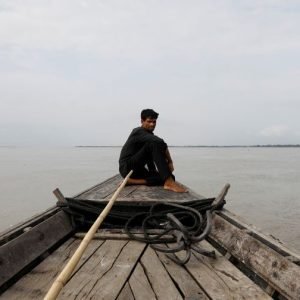
WHEN Melody Adjari passed the Licensure Examination for Teachers (LET) in March this year, she was elated not only because this was her second time taking the exam but because she knew she would become more than just a “teacher”; she would become a “model” and a “bridge”.
Melody is a member of the Sama Dilaut Tribe, more commonly known as Badjao. Her story does not differ from other members of the “minority groups” in a society where there is bullying, economic struggle, and government and civil society neglect, among others.
When she was studying in elementary, Melody recalled how oftentimes she would ask her mother why other children called her Badjao in a mocking tone.
“‘Nganong kantyawan man ko nila’g Badjao ‘ma? Unsa diay naa sa Badjao?’ Mao na perme nako ipangutana sa akong mama sauna while nagahilak ko (‘Why would they mocked my being a Badjao, mom? What’s in being a Badjao?’ That’s what I always asked my mother while I was crying),” she narrated.
She was just glad her support group, including her friends at school who were not members of a tribe, were always on her side, defending her. Melody also has deeper patience with her bully classmates, saying boys are usually the bullies.
Adjari, the daughter of Mastal Bani and Nolita Adjari, said her real struggle was their family’s financial incapacity to send her to college as her father’s only means of income is by peddling stuff Badjao people are known to peddle, like second-hand shoes, ukay-ukay clothes, and pearls.
After graduating high school, Melody worked various jobs to help her family. However, after around two years of being out of school, she married a Badjao man through an arranged marriage per their custom and tradition.
That’s when Melody set aside her dream of graduating from college, and it even worsened when she bore children.







